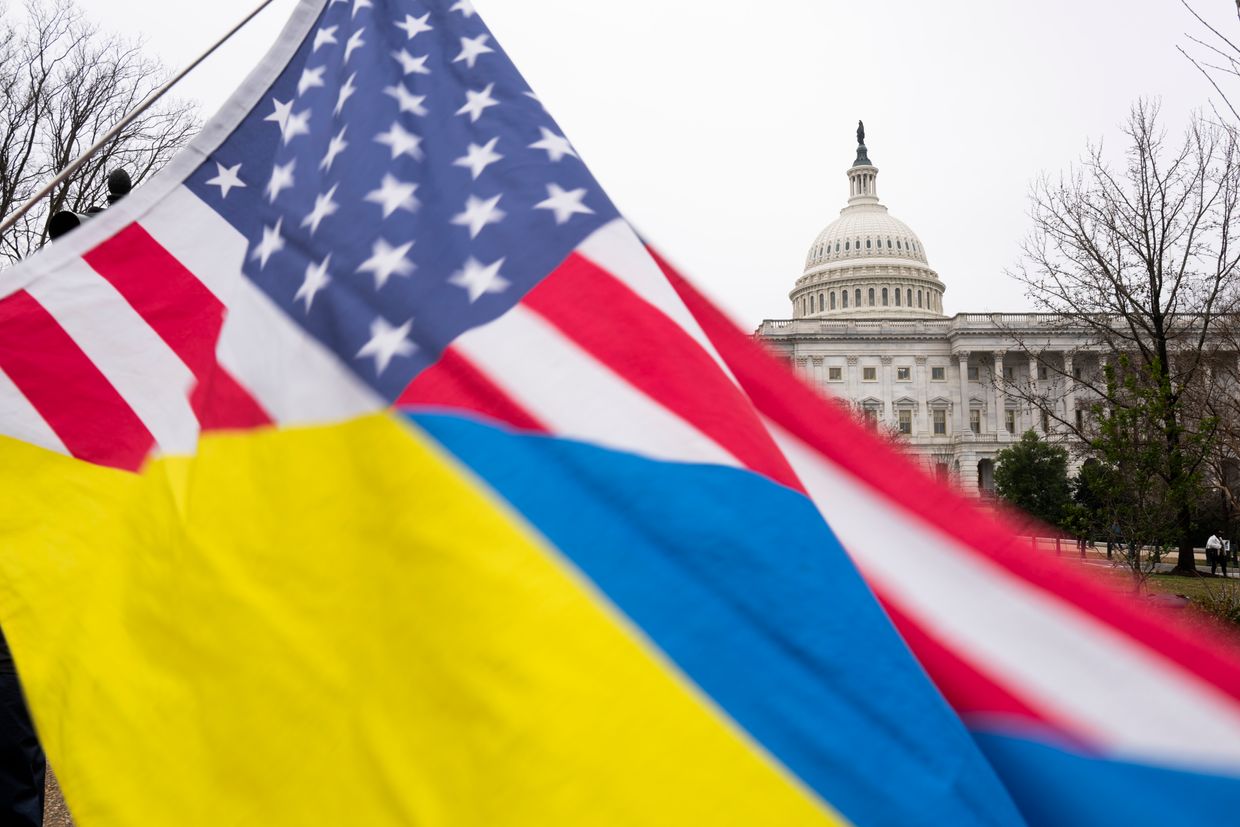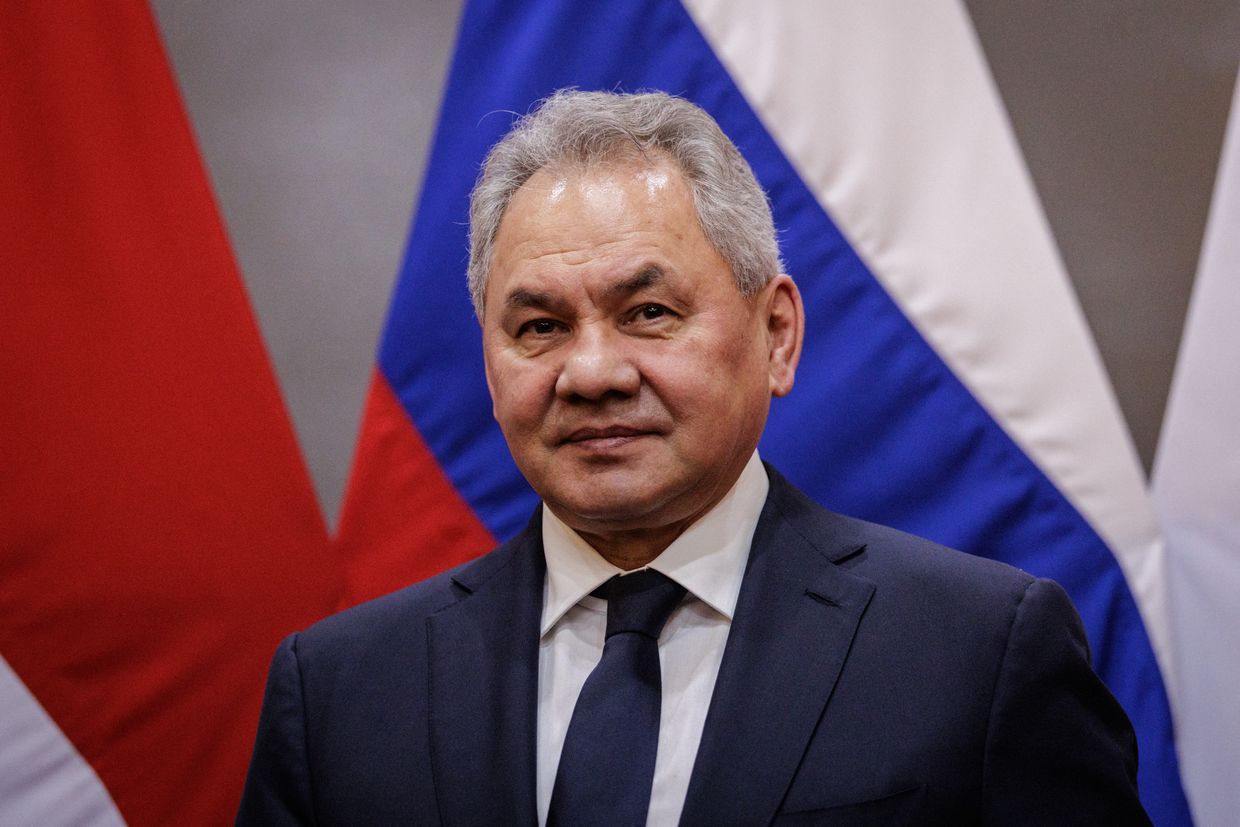The U.S. Senate passed the foreign aid bill in a vote on April 23, paving the way to provide $60.84 billion for Ukraine.
The bill was approved with 79 votes in favor and 18 against.
The bill now heads to the White House to be signed into law by U.S. President Joe Biden.
"I will sign this bill into law and address the American people as soon as it reaches my desk tomorrow so we can begin sending weapons and equipment to Ukraine this week," Biden said in a White House press release after the vote.
President Volodymyr Zelensky thanked U.S. lawmakers for supporting the bill.
"I am also grateful to all Americans who continue to support Ukraine and recognize that the historic significance of this bill transcends politics," Zelensky said.
Zelensky identified air defense systems, long-range weapons, and artillery as Ukraine's most urgent needs, calling the materiel "crucial tools for the speedy restoration of a just peace."
Prior to the vote, some Republican senators spoke out against the bill, citing concerns of inadequate funding for domestic security at the U.S.-Mexico border.
Speaking on the Senate floor, Republican Senator Mike Lee, a staunch supporter of former President Donald Trump, voiced opposition to the aid package.
"Congress cares more about sending billions to wage war in foreign countries ... than saving our own country, especially at a time when we're being invaded," Lee said, referring to migrants at the U.S.-Mexico border.
Other Republican senators spoke in favor of passing the bill, citing the need to combat Russian aggression in Europe.
Prior to starting his speech on the floor, Sen. Lindsey Graham said "history will judge what we do here today."
"If Russia believes we can't stick with Ukraine, they're going to keep going," added Graham, echoing warnings from EU leaders that Russia may attack another European country if it is successful in Ukraine.

After months of political infighting and a deteriorating situation on the battlefield in Ukraine, the U.S. House of Representatives finally passed the crucial foreign aid package on April 20, which includes $60.84 billion for Ukraine.
The House voted on three separate bills on April 20 granting aid to Ukraine, Israel, and the Indo-Pacific region, which is intended to address Chinese aggression in the region. In addition to aiding Ukraine, the bills include $26.4 billion to aid Israel and $8.1 billion to be spent on Indo-Pacific security.
A fourth bill on national security priorities catered to Republican goals, including sanctions on Iran, the potential transfer of seized Russian assets to Ukraine, and a measure that could lead to a ban on TikTok.
The U.S. Senate previously approved a different version of the combined $95 billion funding package on Feb. 13 that included the proposed $61 billion in aid. The aid package was stalled for months as Republican House Speaker Mike Johnson refused to bring the bill to a floor vote on the grounds that the bill did not address security concerns on the U.S.-Mexico border.
Amid ammunition and air defense shortages, Ukraine has urged the United States to quickly deliver military aid once the funding bill is passed.
During a U.S. bipartisan delegation visit to Kyiv on April 22, Bill Keating, a Massachusetts Democratic congressman, said that the first batch of U.S. military aid will be delivered to Ukraine "sooner than anyone thinks is possible."
U.S. Senator Mark Warner also said on April 21 that shipments of long-range missile systems could be ready to be delivered within days.
On April 23, an unnamed source familiar with the provision of aid told CNN that some of the U.S. military aid for Ukraine "is already pre-positioned in storage facilities" in Germany and Poland, which would drastically cut down the time needed for the weapons and equipment to reach the front line.
Two unnamed American officials told Reuters earlier in the day that the U.S. is preparing a military aid package for Ukraine worth $1 billion in initial aid delivery.
CIA Director William Burns recently said that with military assistance, Ukraine could hold its ground through 2024, challenging Russia's recent advances and potential major offensive expected in late spring or in the summer.














